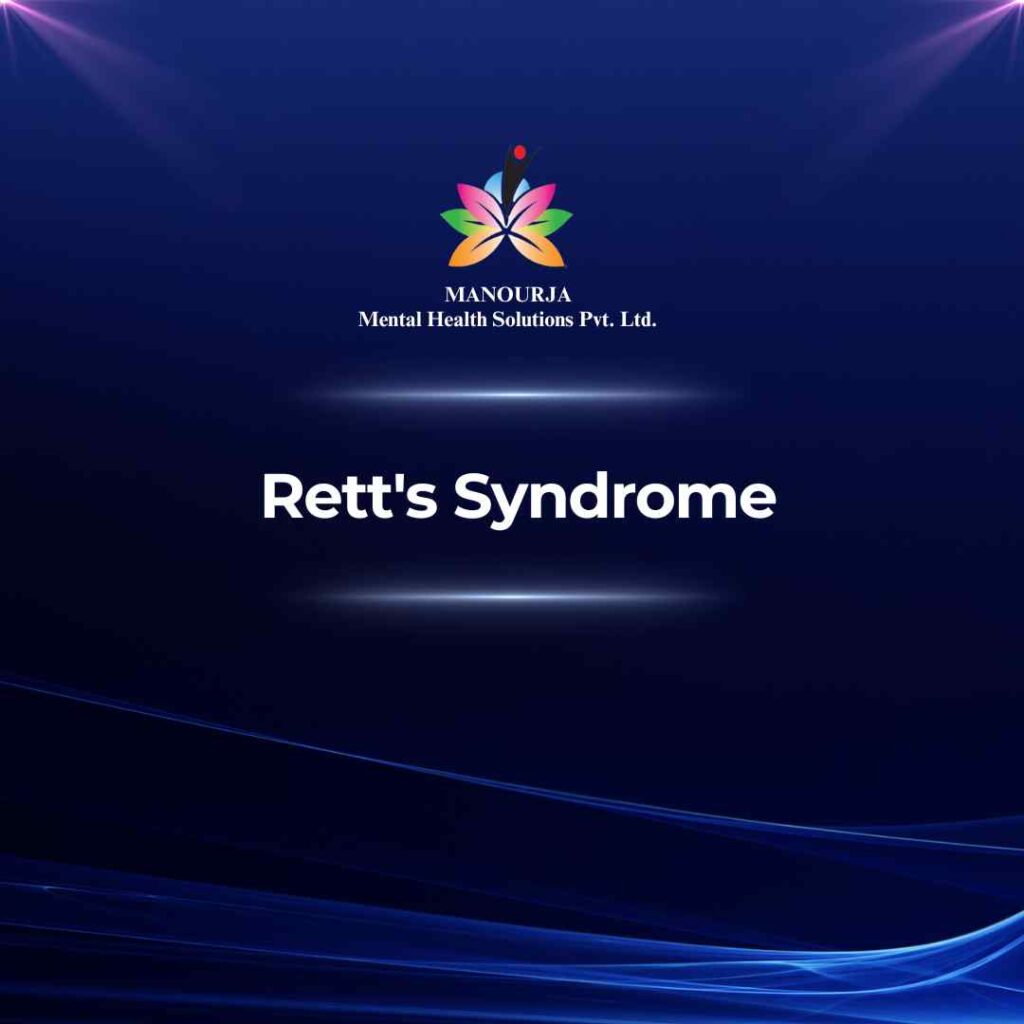Rett’s Syndrome

Rett’s Syndrome is a rare genetic neurological and developmental disorder that primarily affects females and is characterized by a period of normal development followed by a decline in cognitive, social, and motor skills. It is classified as part of the Autism Spectrum Disorders in earlier diagnostic frameworks but is distinguished by its specific genetic causes and progression pattern.
Rett’s Syndrome manifests with a range of symptoms, typically becoming apparent after 6 to 18 months of age. The characteristics include:
- Normal Early Growth: Initial development appears normal, with a subsequent slowing of development.
- Loss of Purposeful Hand Use: Replaced by repetitive hand movements such as wringing or tapping.
- Social Engagement Issues: While initial social withdrawal may occur, social interaction often improves later.
- Communication Problems: Loss of spoken language and communication difficulties.
- Motor Control Difficulties: Problems with coordination and walking; apraxia (inability to perform motor functions) is common.
- Cognitive Impairment: Intellectual disability is a typical feature.
- Breathing Irregularities: Unusual breathing patterns, especially during wakefulness, such as hyperventilation, apnea (breath-holding), and air swallowing.
- Seizures: Common in individuals with Rett Syndrome and may require medical management.
Forms of Rett’s Syndrome
Rett Syndrome has several forms based on the severity and specific mutation involved:
- Classic Rett Syndrome: Follows the typical pattern of early normal development followed by a regression in skills and abilities.
- Atypical Rett Syndrome: Presents with similar but milder symptoms or with a different pattern of developmental regression. Subtypes of atypical Rett include the congenital, preserved speech, and early seizure variants.
Treatment of Rett’s Syndrome
Currently, there is no cure for Rett’s Syndrome, and treatment focuses on managing symptoms and providing support to optimize the individual’s abilities and quality of life:
Management of Motor Symptoms:
- Physical Therapy: Helps maintain mobility and reduce the risk of contractures and scoliosis.
- Occupational Therapy: Focuses on developing and maintaining hand use and improving adaptive skills for daily activities.
Communication Support:
- Speech Therapy: Although many individuals lose verbal abilities, speech therapists work on alternative communication methods, such as using eye-tracking technology or communication boards.
- Augmentative and Alternative Communication (AAC) Devices: Help facilitate communication for those with severe impairments.
Management of Breathing and Cardiac Issues:
- Monitoring and managing breathing irregularities and potential heart rhythm abnormalities, sometimes requiring medication or other interventions.
Nutritional Support:
- Addressing feeding difficulties and nutritional deficits through dietary plans and, in some cases, feeding tubes.
Seizure Control:
- Anticonvulsant medications to manage seizures, which are tailored based on the type and frequency of seizures.
Orthopedic Care:
- Regular monitoring and treatment for scoliosis and other orthopedic issues.
Educational and Social Support:
- Special education programs and social services that cater to the specific needs of children with Rett Syndrome, including support for families and caregivers.
Conclusion
Rett’s Syndrome is a challenging and complex disorder with a profound impact on affected individuals and their families. Treatment requires a multidisciplinary approach to address the various symptoms and to support developmental abilities. Advances in genetic research and ongoing clinical trials continue to explore potential therapeutic options aimed at better managing or potentially reversing the effects of the disorder.
At MANOURJA, we believe in the transformative power of counseling. Our experienced therapists offer a safe and supportive space where you can explore your thoughts, emotions, and challenges. Through personalized counselling sessions, we’ll work together to develop coping strategies, build resilience, and achieve lasting positive change. Discover the path to a healthier, happier you with MANOURJA counselling services.
MANOURJA Rehabilitation Services
At MANOURJA, we’re dedicated to helping you in rebuild your life, after difficult times. Our rehabilitation services focus on understanding what you need to move forward, whether you’re recovering from addiction, trauma, or any psychological – social challenges. We create personalized plans, that are all about helping you, regain your strength and find hope again. With a caring team by your side, you’ll have the support to make real progress and take steps toward a brighter, healthier future.
